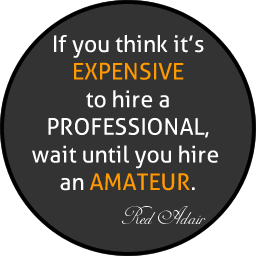Beware of advice like this.
https://twitter.com/WORLDBESTLAW/status/659204367224967168
The issue is not the tweet but the actual article which states:
An attorney is such a “qualified intermediary”. A 1031 lawyer will prepare your 1031 documents and will facilitate the entire tax free transaction. It is very important that a professional such as a Lawyer facilitate the transaction because firstly if any mistake is made on the transaction or the paperwork with the transaction that needs to be filed with the IRS you will lose your tax free status. Also, the IRS regulations state that the money received from the sale of your current property must not be “touched” by you as the owner. It must go directly to the “qualified intermediary” who will then provide the funds for purchase of the new property. The mechanism of a 1031 exchange is quite complex however by utilizing a Lawyer to facilitate the transaction is a very efficient and cost effective way of performing the 1031 tax free exchange.
Let's be clear.
Attorney's can act as 1031 qualified intermediary.
Just don't use your attorney.
Treasury covers this in Reg. 1.1031(k)-1(k)(2).
Patrick Harrigan, President/COO and a Certified Exchange Specialist at Gain 1031 Exchange Company, LLC covers this really well here:
The Role of the Qualified Intermediary in a 1031 Exchange: Who Can Audition?
This is what he says:
The Treasury Regulations state that someone who has acted as the taxpayer’s employee, attorney, accountant, investment banker, real estate agent or broker within two years prior to the date of the closing of the sale of the relinquished property is the agent of the taxpayer and is disqualified to act as the intermediary for that taxpayer. This means a seller of property cannot have their attorney, real estate agent, etc. hold their proceeds if they intend to complete a 1031 exchange. Also disqualified are all attorneys in the same firm as the seller’s attorney and any real estate agent in the same brokerage as the seller’s real estate agent. The regulations then proceed to state two exceptions to the disqualification of an agent.
Exception 1
The regulations except out services that are routine financial, title insurance, escrow or trust services performed by a financial institution or title insurance company. Thus, those businesses do not become an agent of the taxpayer based on their routine activities and are allowed to act as intermediaries.
Exception 2
The regulations also except out services performed by the agent “for the taxpayer with respect to
exchanges of property intended to qualify for nonrecognition of gain or loss under Section 1031.”
The best bet is to hire an unrelated 1031 Intermediary company like Asset Preservation or Starker Services.
Any extra work to do this is sure to be less than that of an IRS challenge or a voided 1031 exchange.

Put $7,967.31 in your pocket!
Learn about how a guy got paid $7,967.31 when he did his 1031 exchange.
BONUS: Find out how to do a 1031 exchange for FREE.
Find out How



